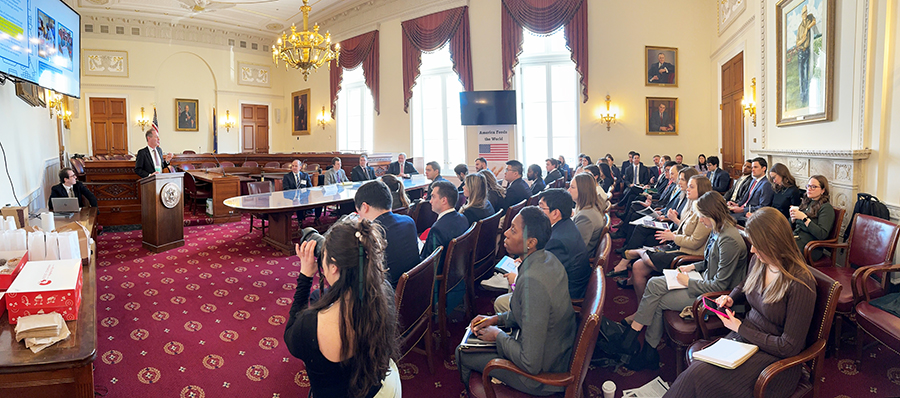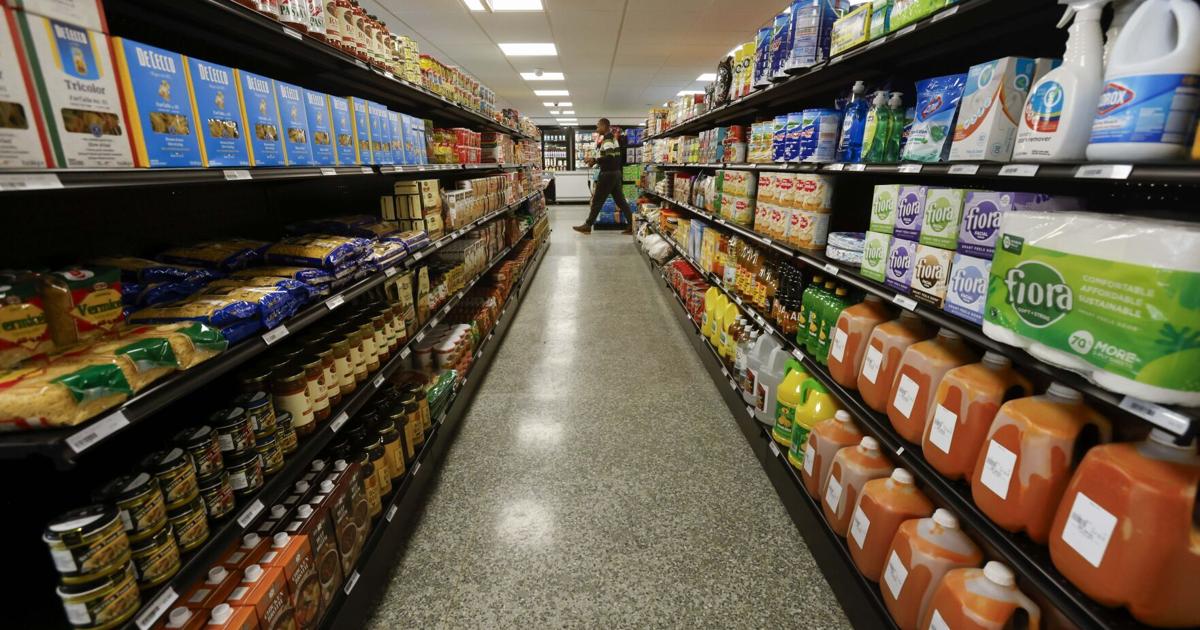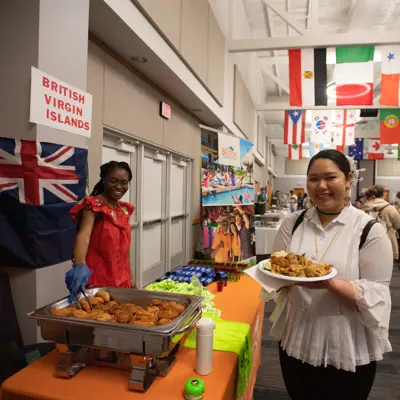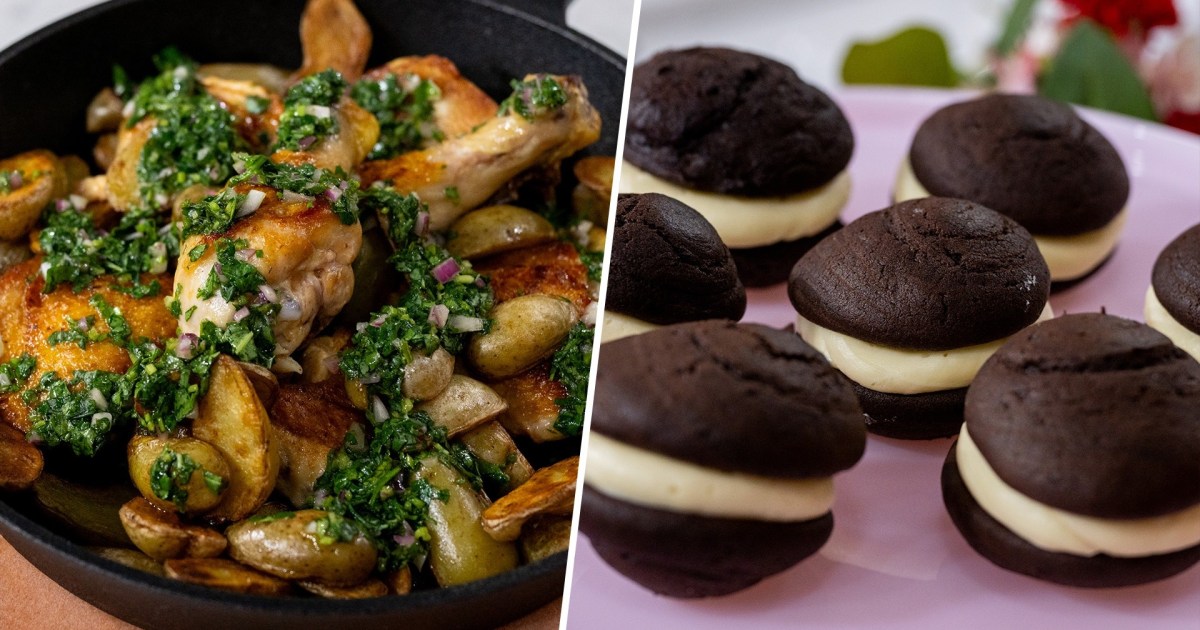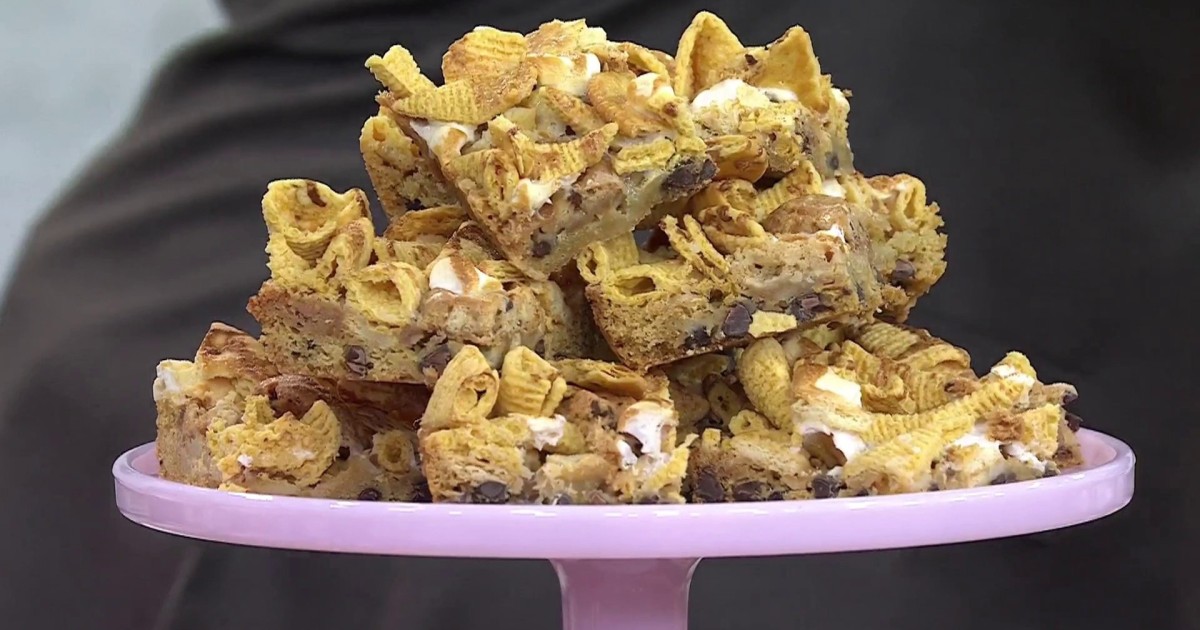The first flavor of ice cream I remember loving was Swiss Orange Chip — an intense milk chocolate ice cream infused with a slightly bitter orange flavor and dotted with flakes of dark chocolate. I was four or five years old when I tried it. My tiny mind was blown. The dark chocolate was a revelation, forever relegating milk chocolate to second-tier status. And chocolate-orange remains one of humanity’s all-time best flavor combos.

An employee prepares an ice cream cone for expectant customers at Swensen’s Ice Cream shop on July 5, 2007 in San Francisco.
(David Paul Morris
/
Getty Images)
To find Swiss Orange Chip, you had to go to one place — Swensen’s Ice Cream. Decorated like an early-1900s ice cream parlor with colorful Tiffany-style pendant lights and employees wearing bow ties and striped vests, it was like Farrell’s, but with better ice cream and no drum-banging. Swensen’s became our family’s go-to spot for a sweet reward. Got a good report card? Let’s go to Swensen’s. Finished a successful soccer season? Swensen’s. Selected for the junior high honor band? Swensen’s.
Founder Earle Swensen had learned to make ice cream while serving in the U.S. armed forces during World War II. (Uncle Sam wants you … to make incredible frozen desserts!) He opened his first shop in San Francisco in 1948, calling it See Us Freeze Delicious Ice Cream. When Swensen left his day job in the city assessor’s office to run the business full-time, he changed its name.

Tubs of ice cream are displayed at Swensen’s Ice Cream shop on July 5, 2007 in San Francisco.
(David Paul Morris
/
Getty Images)
Swensen was something of a Willy Wonka when it came to ice cream. He developed dozens of unique flavors — Sticky Chewy Chocolate, Caramel Cashew, Turkish Coffee, Pumpkin, Eggnog, Cranberry — and he insisted they be made with high-quality ingredients such as Guittard chocolate and seasonal fruit. Each location made its own ice cream, on the spot, from Earle’s recipes. Come at the right time and you could watch through the windows as it was churned in large, industrial machines.

SAN FRANCISCO – JULY 5 : Dick Campana, owner of the Swensen’s Ice Cream shop, adds ice cream mix to strawberry ice cream on July 5, 2007 in San Francisco, California. The California Department of Food and Agriculture has increased what dairy farmers receive for a gallon of milk to $1.98, up from $1.06 last year. The price increase comes as a result of a various shifts in supply and demand and rising costs of fuel. (Photo by David Paul Morris/Getty Images)
(David Paul Morris/Getty Images
/
Getty Images North America)
To me, Swensen’s just tasted better than other ice creams, and that commitment to quality is probably why. The world is now filled with wild flavors and premium ice cream brands, but back in Ye Olde Days (i.e. up until the 1990s), this kind of creativity and devotion were rare in the ice cream world.

The last remaining location of Swensen’s Ice Cream in California, in San Francisco.
(Courtesy of Prospect Park Books)
Swensen’s boomed. By 1964, it had expanded to more than 400 locations worldwide.
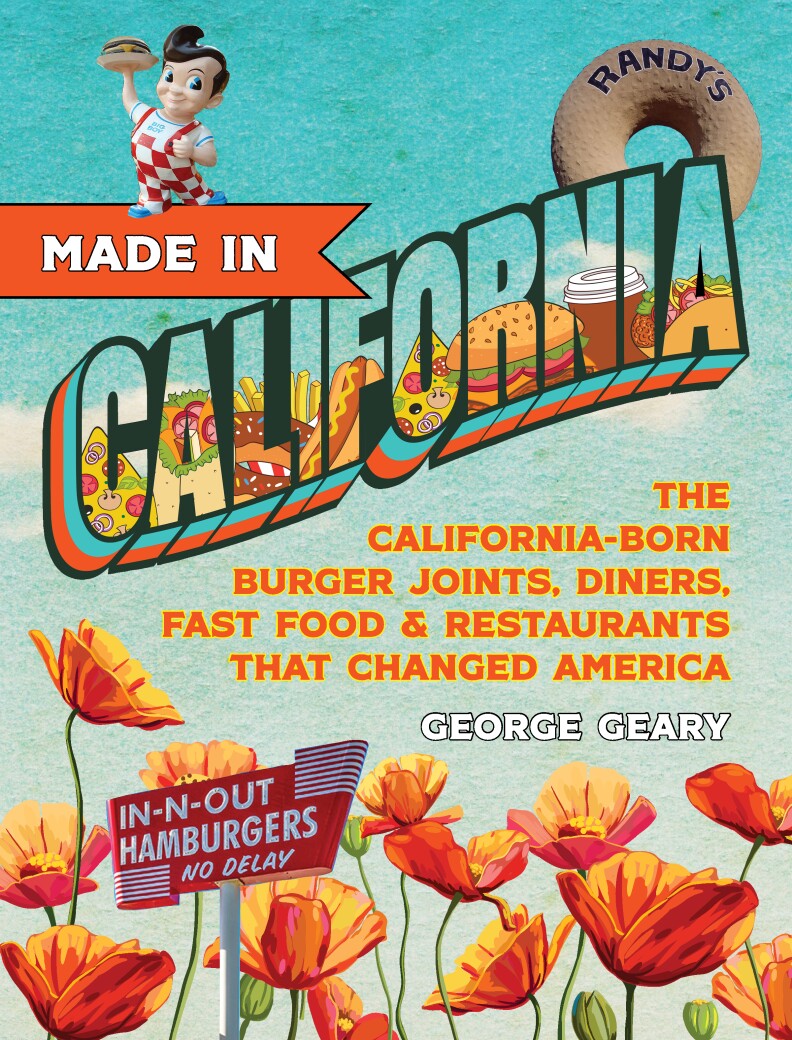
The cover of the book “Made in California” by George Geary.
(Courtesy of Prospect Park Books.)
In 1982, Swensen sold his stake in the company, except for the original store. That same decade, the company’s owners moved Swensen’s headquarters to the Phoenix area and told franchisees they had 30 days to ditch their batch freezers and start buying their ice cream from the Phoenix plant.
“Half the owners changed the names of their stores, and the company dropped to 200 locations overnight,” George Geary explains in his new book, Made In California: The California-Born Diners, Burger Joints, Restaurants & Fast Food that Changed America.
Over the next few decades, as Swensen’s faced increased competition from premium ice cream brands such as Ben & Jerry’s and Häagen-Dazs, its stores closed. The brand still has a strong overseas presence, with hundreds of shops in Asia, but there are now only three Swensen’s ice cream shops in the United States — Midland, Texas; Coral Gables, Florida; and San Francisco, the only one that still makes its ice cream in-house.
This is just one of the tales recounted by Geary in Made In California, a book that both celebrates some of our favorite California-based restaurants and illuminates their origins.

People stand in front of the Hot Dog on a Stick stand near Muscle Beach.
(Courtesy of Prospect Park Books)
“I only went to 1965,” Geary told Larry Mantle on AirTalk. “I have another book that I can do that will keep going. I was looking for places that started in California, that the buildings maybe were still there and the family story is fascinating. In a lot of these, it’s just a mom-and-pop that started a hotdog stand that turned into something else, like Carl’s Jr. That was only a little hotdog place in downtown L.A. called Blimpies.”
Made In California covers the Golden State origins of 50 restaurants, many of which you’re bound to recognize. They include Fatburger, Del Taco, Hot Dog On A Stick, Norm’s, El Cholo, Orange Julius, The Red Onion, Baskin-Robbins, El Torito, Shakey’s Pizza and Del Taco.

The Bellflower location of Chris’ & Pitt’s Bar-B-Q still survives.
(Courtesy of Prospect Park Books)
Did you know that the first IHOP, which opened in Burbank in 1958, still stands and is now a Le Pain Quotidien? Or that the three locations of Chris’ & Pitt’s, founded in 1949 in a former dry-cleaning shop in South Gate, still cook their steaks over a wood fire?
Made in California is also a record of what we’ve lost. The book documents the rise and fall of several businesses that are no longer around, but are still beloved by Southern Californians.

A location of the Van de Kamp’s bakery chain, which opened its first location on Spring St. in DTLA in 1915.
(Courtesy of Prospect Park Books)
Do you miss the spinning windmills of Van de Kamp’s? The hot dogs and pastrami sandwiches at Pup ‘n’ Taco? You’re not alone. How about the crunch of a battered, deep-fried drumstick from Pioneer Chicken? The once vibrant poultry chain debuted its first location in 1961 in Echo Park, on Sunset Blvd., where it was named after the nearby Pioneer Market. These days, only two locations remain, one in Boyle Heights and the other in Bell Gardens.

An Orange Julius location.
(Courtesy of Prospect Park Books)
Whether it’s the cheese toast at Sizzler (a personal favorite of this writer) or an ice cream float at A&W (the closest one to L.A. is in Mentone, in San Bernardino County), Geary acknowledges that our affection for some of these restaurants is sometimes more nostalgic than culinary.

One of the last L.A. locations of Pioneer Chicken.
(Courtesy of Prospect Park Books)
“When I was researching all this, I thought, Well, there’s two [Pioneer Chickens] left. Let’s see if it tastes the same. When you tasted the batter, it had this weird orange-ness. If you took anybody from back East to a Pioneer Chicken or similar place, they’d think we didn’t have tastebuds, because it really wasn’t very good. But it’s in our memory,” Geary said.

A chicken dinner at Pioneer Chicken.
(Courtesy of Prospect Park Books)
Not everything that has closed is gone forever. Just this week, the Los Angeles Times reported that Clifton’s Republic, the Depression-era cafeteria with the over-the-top woodland decor, will partially reopen in mid-October. Will it be the same vibe as it was when thousands of people flowed through the establishment in the 1930s? Of course not. But it’ll be reassuring to, once again, be able to sip a cool cocktail under the shade of a grinning, animatronic grizzly.

Clifton’s Cafeteria on Nov. 18, 2016.
(Charley Gallay/Getty Images for Airbnb)
You can listen to the full AirTalk episode featuring Geary and his book by clicking here.
Have an idea for a food story you’d like to see on LAist?
Send it our way. We can’t reply to every query we receive but we will try to help. We’d love to hear from you.


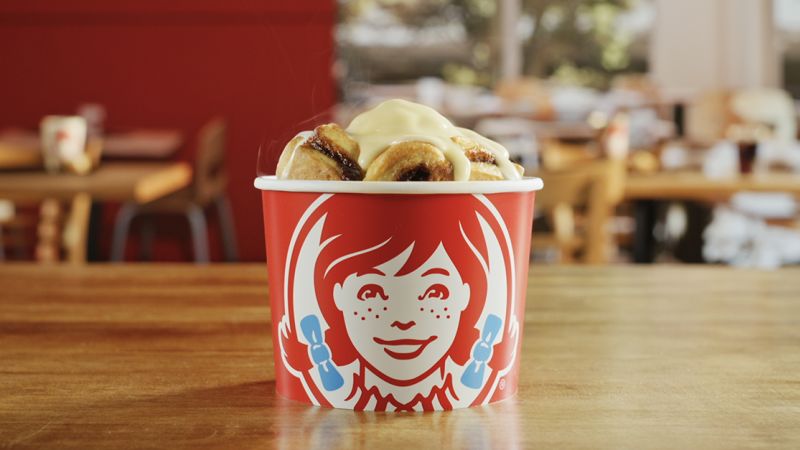
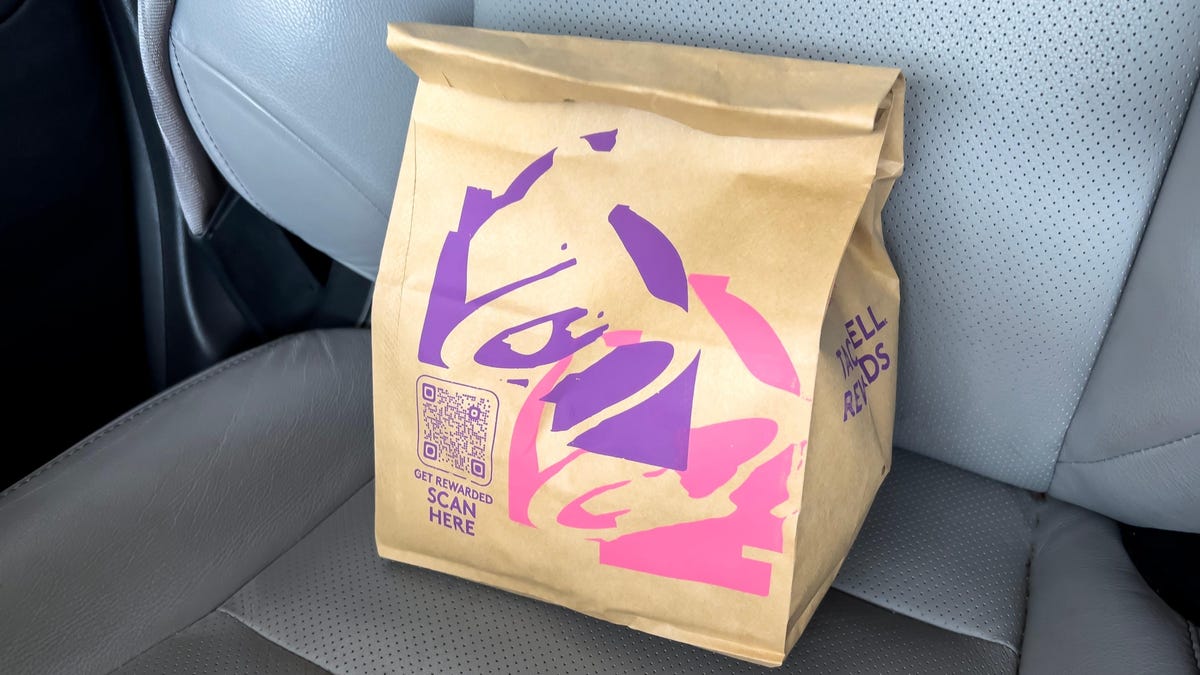


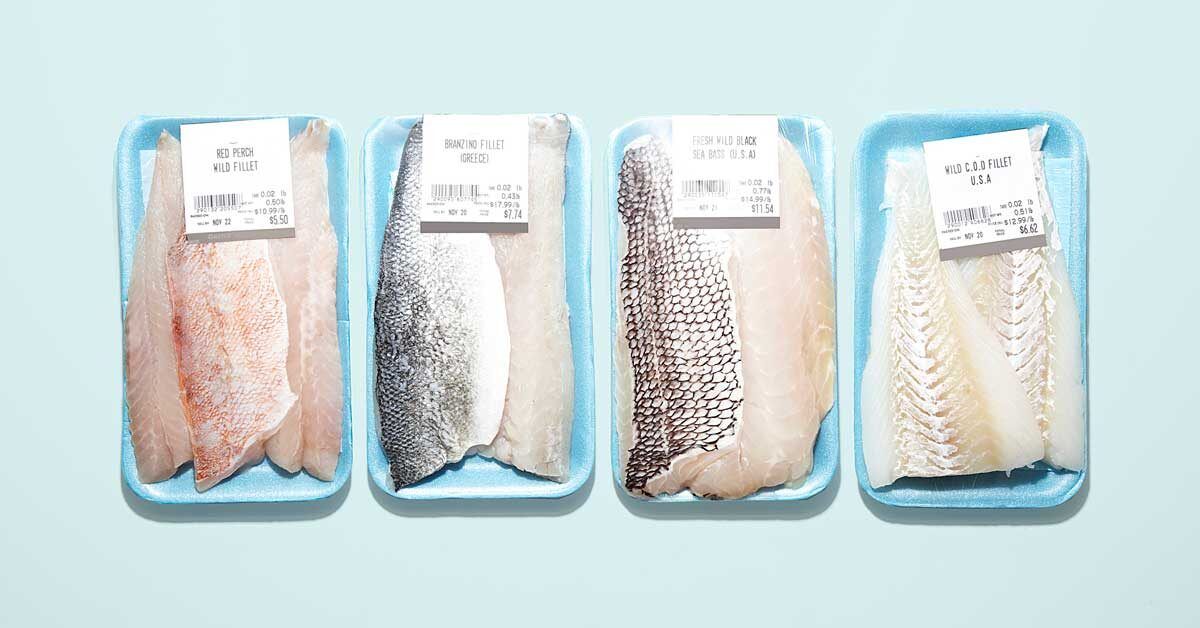
:max_bytes(150000):strip_icc()/ChickenBreast-7c055ca42ace4670867b52b9ab642824.jpg)




